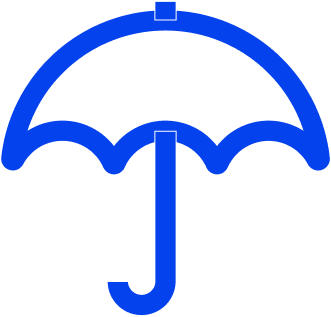Pennsylvania Homeschooling Laws and Resources
If you’re considering homeschooling in Pennsylvania, this guide provides you with information that will help you get started, such as the state’s legal requirements, tips, and resources.
Homeschooling in Pennsylvania Overview
Notice of Intent Required: Yes, Homeschool Affidavit
2 Options for Homeschooling: Homeschool Statute, Private Tutor
Subject or Curriculum Requirements: Yes
Attendance Age Requirements: 6-18
Record-Keeping Requirements: Yes
Assessments or Evaluations Required: Yes
Proof of Immunization Required: Yes
Table of Contents
Pennsylvania Homeschooling Laws and Regulations
How to Start Homeschooling
Options for Homeschooling
Proof of Homeschooling
Homeschool Affidavit
Qualifications to Homeschool
Legal Requirements
Subject and Curriculum Requirements
Attendance and Age Requirements
Record-Keeping Requirements
Evaluations and Assessments
Required Immunizations
Resources for Homeschooling Families in Pennsylvania
Homeschool Groups and Co-ops
Organizations and Associations
Sports Opportunities
Homeschool Field Trips
Special Education Homeschoolers
How Our Curriculum Can Help
Homeschool FAQ


How to Start Homeschooling in Pennsylvania
The Pennsylvania Department of Education (PDE) has created mandatory steps to begin your homeschool journey. First, you’ll need to withdraw your children from public school if they were previously enrolled. You’ll then create and submit your annual Homeschool Affidavit. (In other states, this document is called a Notice of Intent to Homeschool.) Next, you’ll choose which homeschool option best suits your family.

Options for Homeschooling in Pennsylvania
Pennsylvania has two ways to set up a homeschool. There is the traditional approach, where the parent or legal guardian is the teacher and responsible for delivering all facets of instruction. The other option is to hire a private tutor.
Homeschooling Under the Homeschool Statute
To homeschool under this method, you must have your high school diploma and be free of criminal offenses in the past five years. You’ll need to keep organized records to comply with the Homeschool Affidavit, attendance, subject, and testing requirements.
TIP: This homeschool option allows for more flexibility in your child’s school schedule and gives you, the home educator, full control of what students learn and how it’s delivered.
Hiring a Private Tutor
For many homeschooling families, hiring a private tutor is a viable way to curate a homeschool in Pennsylvania. A homeschool tutor must be a certified Pennsylvania teacher with a current teaching license.
Hiring a private tutor in Pennsylvania reduces the steps required to comply with homeschool laws. Rather than filing a Homeschool Affidavit, the private tutor must submit a copy of their teaching certification to the school district where the students live. The tutor must also give the school district the names and addresses of the students they’re tutoring.
TIP: This method of homeschooling includes truancy compliance. The private tutor must tell the school district if a child misses three days of instruction during the school year without a lawful excuse.
Here is a comparison of Pennsylvania’s two homeschooling options:
| Homeschooling Under the Homeschool Statute | Hiring a Private Tutor |
| Homeschool Affidavit required | No Affidavit required |
| Annual evaluation required | No evaluation required |
| Can dual enroll in public school | Can dual enroll in public school |
| Teacher needs a high school diploma | Teacher needs a PA teaching license |

Pennsylvania Proof of Homeschooling
To begin homeschooling in Pennsylvania, you’ll need to create a yearly homeschool affidavit and have it notarized before submitting it.
TIP: You need to submit this document for the first time when your child turns 8 and has not yet been enrolled in school or when you withdraw your child from a public or private school.
You can submit your first homeschool affidavit anytime. However, you must have the affidavit recorded by August 1st for every following school year.
Creating a notarized document can sound intimidating. Learn exactly what to include and how to submit your homeschool affidavit here.

Submitting Your Pennsylvania Homeschool Affidavit
You’ll need to submit a notarized homeschool affidavit to the local school superintendent annually. These are the things you must include in your document:
- Name of the supervisor of the home education program (that’s you!)
- Name and age of the student
- Address and phone number of the home education program site (typically your home address).
- A statement that mandatory subjects will be taught in the English language
- Proposed education objectives outlined by subject area
- Evidence of child’s immunization
- Evidence that the child has received the health and medical services required for students of their age or grade level
- Assurance of compliance with the law
- Certification that the supervisor, all adults living in the home, and persons having legal custody of the student have not been convicted of criminal offenses within five years before the affidavit date.
Pennsylvania’s education department created an affidavit template you can use and edit to ensure you include all the required information.

Qualifications to Homeschool in Pennsylvania
Pennsylvania has several requirements for home educators. They must be the child’s parent or legal guardian, have a high school diploma (or equivalent), and be clear of criminal offenses for the last five years.
TIP: If you choose to hire a private tutor for your homeschooler, they must have an active Pennsylvania Teaching license.

Legal Requirements to Homeschool in Pennsylvania
Pennsylvania has very specific laws to regulate homeschooling. To successfully homeschool while living in the Keystone State, you’ll need to keep meticulous records that include attendance and subject matter, submit your annual Homeschool Affidavit, and have your child evaluated at the end of every school year.

Pennsylvania Homeschool Subject and Curriculum Requirements
If you’re homeschooling in Pennsylvania, you will be required to instruct your child in the same subject areas as the public school system, and the instruction must be in the English language.
Elementary-aged children are required to receive instruction in these core areas:
- English (spelling, reading, and writing)
- Arithmetic
- Science
- Geography
- History of the United States and Pennsylvania
- Civics
- Safety education (including instruction in fire danger and prevention)
- Health and physiology
- Physical education
- Music
- Art
Homeschoolers in grades 7-12 are required to learn these subjects:
- English (language, literature, speech, and composition)
- Science
- Geography
- Social studies (civics, world history, history of the United States and Pennsylvania)
- Mathematics (general mathematics, algebra, and geometry)
- Art
- Music
- Physical education
- Health
- Safety education (including instruction in fire danger and prevention)
- Optional courses (at the discretion of the supervisor of the home education program):
- Economics
- Biology
- Chemistry
- Foreign languages
- Trigonometry
- Other age-appropriate courses
Keeping a robust portfolio and homeschool transcript records can help you track areas of instruction and present a complete homeschool education to the evaluator at the end of the year.
TIP: The school district is legally required to provide homeschoolers with curriculum supplies to teach these mandatory subjects. If you need materials in any of these areas, reach out to your local school.

Pennsylvania Homeschool Attendance and Age Requirements
Compulsory attendance requirements kick in when your child is 6 years old by September 1. If your child turns 6 after that date, you can wait until the next year to enroll them in homeschool.
TIP: Compulsory attendance ends when your child turns 18 or they receive their certificate of graduation.
Home educators must log their child’s attendance or instruction hours. You can choose to log one of the following two options:
- 180 days of instruction
- 900 hours of instruction per year at the elementary level and 990 hours per year at the secondary level

Pennsylvania Homeschool Record-Keeping Requirements
Since Pennsylvania is a highly regulated state, homeschooling requirements include meticulous record keeping for each homeschooled child.
It’s important to keep records of your communication with the state and local school district.
You’ll also want to keep these items in your homeschool file:
- Evaluation records
- Standardized test results
- Immunization or Exemption documents
- Copies of your annual homeschool affidavit
- Homeschool Portfolio, which includes samples of writing, creative materials, and a reading log.

Pennsylvania Homeschool Assessments and Evaluations
According to the state homeschool law, Pennsylvania’s homeschooled students must take statewide tests during grades 3, 5, and 8. The test results must be included in the student’s portfolio but are not reported to the school district.
Pennsylvania homeschoolers can choose from a variety of approved standardized tests. Find them on the Pennsylvania Department of Education home education page.
To comply with Pennsylvania’s homeschooling regulations, your child’s portfolio must undergo a written evaluation showing that they receive an appropriate education based on state homeschool laws. This must happen by June 30th of each school year.
The evaluation must be conducted by one of the following individuals:
- a licensed psychologist
- a state-certified teacher with at least two years of teaching experience
- a nonpublic school teacher or administrator with at least two years of teaching experience in the last 10 years in public or nonpublic schools.
TIP: The parents or legal guardians cannot serve as the evaluator.
We recommend finding an evaluator who you connect with and supports your homeschooling format. This tool by Christian Homeschool Association of Pennsylvania can be a great way to search for an evaluator in your area.
If the superintendent suspects your homeschool isn’t providing the required education, you may receive a letter requiring an evaluation to be conducted and an evaluator’s certification to be submitted within 30 days.

Required Immunizations for Homeschoolers in Pennsylvania
All Pennsylvania school children must be immunized to attend school, including homeschooled children. Pennsylvania allows immunization exemptions, and you can utilize an exemption for medical reasons, religious beliefs, or strong moral or ethical convictions.
TIP: You’ll need to keep your immunization records or exemptions on file and plan to attach them to your Homeschool Affidavit annually.

Resources for Homeschool Families in Pennsylvania
Pennsylvania offers an abundance of resources for homeschooling families. Whether you seek support, entertainment, or educational opportunities with other homeschooling families, there are numerous options available.
TIP: Local homeschool organizations can provide you with connections to highly recommended evaluators.
Pennsylvania has created an avenue for homeschool support organizations to officially register and be listed on their education department website. You can use this list to find support near you.

Homeschool Groups and Co-ops in Pennsylvania
Joining or creating a homeschool group or co-op can provide your family many benefits and a sense of fulfillment.
A homeschool group’s purpose is to foster a community among homeschooling families. Your children can socialize with peers who are also being homeschooled, and they can participate in group activities like field trips or physical education classes. Home educators can connect with other experienced homeschoolers and join online groups for support and guidance.
A homeschool co-op (short for cooperative) involves selecting a homeschooling model that takes advantage of the skills and expertise of other adults, including yourself. By connecting with a co-op, parents share the teaching responsibilities, and children consistently learn alongside other homeschoolers while also benefiting from various teaching styles and personalities.
When you begin looking for a homeschool group to join, it’s best to start the search online. Here are some popular homeschool groups and co-ops in Pennsylvania.
Homeschooling in PA – A new, welcoming state-wide homeschooling group
Pennsylvania Homestead Homeschoolers
PA Homeschool Meets and Support

Homeschool Organizations and Associations
When compared to homeschool groups or co-ops, homeschool organizations and associations are typically more formal in structure.
TIP: Homeschool organizations and associations offer a broad range of support and assistance to homeschooling families, including information, resources, legal support, advocacy efforts, and access to various events.
If you’re looking for a homeschool association in Pennsylvania, you’ll want to check out LCC Homeschool Association of PA or the Christian Homeschool Association of Pennsylvania. Both organizations are dedicated to empowering homeschooling families with support and knowledge.

Sports Opportunities for Homeschoolers in Pennsylvania
Homeschoolers in Pennsylvania have the same access to local school sports as public school students. To participate, homeschooled students must meet the same requirements as their public school counterparts. Check with your local school to understand their eligibility process.
For homeschoolers, time flexibility allows students to participate in many fun athletic adventures. Here are some Pennsylvania favorites:
| Group Name & Website | What They Cover | What Area in Pennsylvania |
| Reach Climbing | Yoga, Krav Maga, rock climbing, ninja obstacles | Bridgeport |
| GymSport | Gymnastics, parkour, ninja obstacles | Bridgeville |
| Marple Sports Arena | Hockey, basketball, flag football, soccer | Bromall |
| Meraki Run Club | Recreational track and field | Chester County |

Pennsylvania Homeschool Field Trips
With the flexibility of homeschooling, you can spend as much time as you want enjoying the hands-on learning of field trips.
Pennsylvania is rich with history, culture, events, and natural wonders. So pack a lunch, and hit the road to one of many amazing field trip opportunities near you.
Here are some popular homeschool field trips in Pennsylvania:
- Gettysburg National Military Park: Visit the historic Civil War battle site and learn about its impact on American history. The park offers ranger-led tours, museum exhibits, and living history programs.
- The Franklin Institute: This science museum in Philadelphia offers interactive exhibits, hands-on activities, and live demonstrations on topics such as electricity, physics, and space exploration.
- Hershey’s Chocolate World: Take a tour of Hershey’s chocolate factory and learn about the history of chocolate making. You can also participate in hands-on activities and sample delicious treats.
- Pennsylvania Renaissance Faire: Experience life during the Renaissance period at this annual fair in Manheim. Attend a jousting tournament, watch live performances, and participate in historical demonstrations.
- Crystal Cave: Explore one of Pennsylvania’s most unique geological formations at Crystal Cave in Kutztown. Take a guided cave tour and learn about its formation and history.

Special Education Homeschoolers
Homeschooling can be a great option for children with different learning needs. When homeschooling a child with special needs who has an Individualized Education Plan (IEP) in Pennsylvania, parents and guardians have two options after withdrawing a child from the public school system. Since Pennsylvania is a high-requirement state, the options are more intensive than other states may be.
The first option is to continue working with the IEP team at the school. While this may seem like the easiest way to continue receiving services, it also comes with oversight. In fact, for students who have a current IEP and choose to work with the school, parents and guardians are required by PA homeschooling law to have their program approved each year. Approval is given by a currently certified teacher, licensed clinical psychologist, or licensed school psychologist. The written approval letter must be included with the annual homeschooling affidavit.
TIP: For students who have had their IEPs terminated, the required approval and oversight are not required. However, when the IEP is no longer in effect, neither are special education services that the child may have been receiving.
If working with the IEP team is not preferred, families can create an Individualized Service Plan (ISP). An ISP is a detailed plan about how and when special education services will be available to the student. It should also include the goals for the school year and indicate who will be providing services for the student. While this option puts the onus for services on parents and guardians, it comes with less oversight and no legal requirement to have the homeschool program approved yearly.

Support Your Homeschool with ABCmouse and Adventure Academy
Our digital learning programs are designed by curriculum experts to assist your homeschool and children ages 2 through 13. ABCmouse is a comprehensive online educational platform for children ages 2-8, while Adventure Academy focuses on children ages 8-13. Both programs provide access to lessons on reading, language arts, math, sciences, social studies, and more. Learn more about how each program can enhance your homeschool below.
ABCmouse and Homeschooling
ABCmouse offers over 10,000 learning activities and more than 850 lessons for children, plus a large digital library of books and educational puzzles, songs, activities, and worksheets. The program encourages self-paced learning with motivating rewards and includes progress tracking, which allows home educators to monitor time spent on certain subjects and the number of activities completed.

Then just $14.99/mo. until canceled
As a paid add-on to regular subscriptions, home educators can access the Assessment Center, which allows parents and caregivers to test children on their knowledge, determine successes and struggles, and receive recommended lessons based on assessments.
ABCmouse provides a robust curriculum that can supplement other early learning lessons. It’s trusted resource that’s been downloaded over 10 million times and has a 4.5-star average out of 831.4K ratings.
Adventure Academy and Homeschooling
Adventure Academy combines an interactive world with a curriculum covering reading, language arts, math, science, and social studies. With quests, games, and educational videos and activities, learning becomes an epic journey that motivates kids to explore various topics.
For homeschooling families, Adventure Academy offers an engaging, flexible learning experience that can supplement other educational materials. The program features thousands of activities created by curriculum experts and covers all major academic domains.
Parents and caregivers can choose academic difficulty levels and track each child’s progress, seeing time spent in Adventure Academy, activities completed, and subjects studied.
Adventure Academy emphasizes key topics such as reading comprehension, vocabulary development, mathematical operations, fractions, world geography, American history, physical science, life science, earth science, and scientific inquiry.
For more information, visit AdventureAcademy.com.

Pennsylvania Homeschool FAQ
How do Pennsylvania homeschoolers get a diploma?
The Pennsylvania Department of Education has established three pathways for homeschoolers to earn a state-recognized diploma.
- Enroll in a public school for the final year of high school and earn a diploma through the school district.
- Utilize an approved Home Education Diploma-Granting Organization
- Issue a parent-issued Home Education Diploma
Is unschooling legal in Pennsylvania?
Every Pennsylvania homeschooler must receive instruction for a specific number of hours in mandatory school subjects. Additionally, students must participate in periodic testing and annual evaluations.
While unschooling is not prohibited in Pennsylvania, you, as the home educator, will have to consider if you can adequately comply with state statutes in an unschool format.
Is Pennsylvania considered a homeschool-friendly state?
Homeschooling is legal in Pennsylvania, and the methods of teaching your child are flexible. Despite having higher levels of oversight and requiring meticulous recordkeeping, Pennsylvania can be a fantastic place to homeschool.
The state gives great support to homeschoolers, such as access to curriculums and books through the school district, as well as inviting homeschoolers to dual enroll or participate in public school sports.
How much does it cost to homeschool in Pennsylvania?
Every family will experience its own unique costs to homeschool. Homeschoolers in Pennsylvania are not charged fees to homeschool, but your actual costs will depend on the materials and curriculum you buy or rent and the activities you participate in.
TIP: Pennsylvania allows homeschoolers to borrow books and materials from the public school that support teaching the required subjects.
Utilizing this public school access and the local library system can help homeschoolers save money.
How do I enroll my child in public school after homeschooling in Pennsylvania?
If you discontinue your home education in Pennsylvania for any reason, each school district will determine the policies for switching from homeschooling to public school.
The schools will make their own decisions on matters such as grade level placement and credit transfer, and this will vary from school to school based on their individual discretion.
It’s important to note that the school you intend to transfer to may ask to see your student’s portfolio and may also require them to take placement tests that are specific to the school.
Legal Disclaimers
“The information and materials provided are for informational purposes only, and does not constitute legal, or other professional advice.
Any links provided to third-party resources are provided for convenience only. We do not sponsor or endorse, and are not affiliated with such parties, unless explicitly stated otherwise. We do not maintain or control these websites. Information presented on these sites may not be current or accurate – it is your responsibility to determine its accuracy and usefulness. By clicking on the links provided, you understand that you may be subject to additional terms and conditions and the privacy policies of such third parties.
Age of Learning makes no representation and assumes no responsibility for the accuracy of information contained on, or available through, this website, or its suitability for any purpose, and such information is subject to change without notice. You are encouraged to confirm any information obtained from or through this website with other sources, and review all information regarding any information with a trained legal professional.”





















